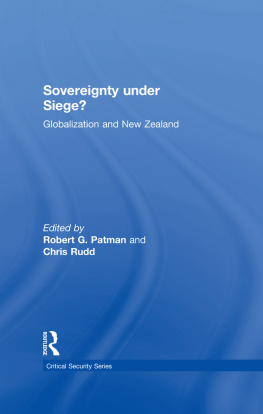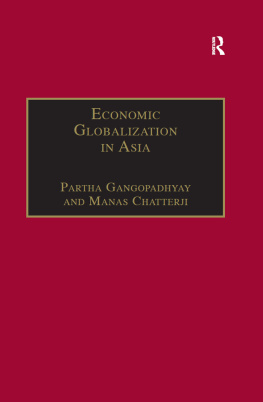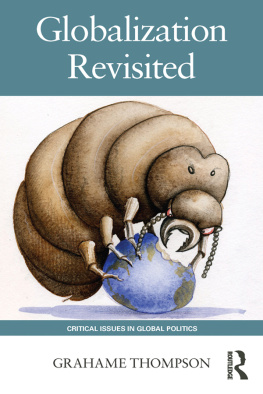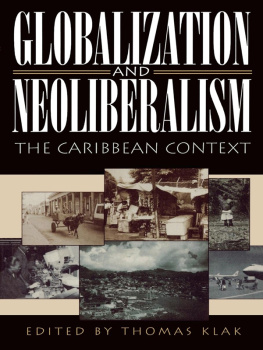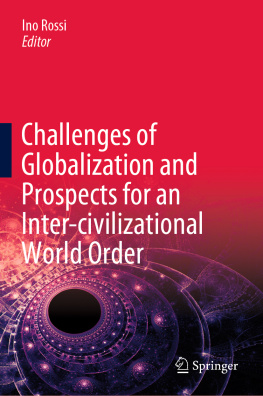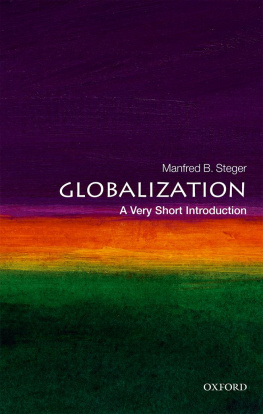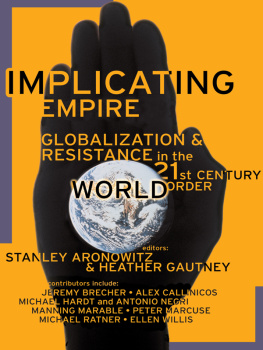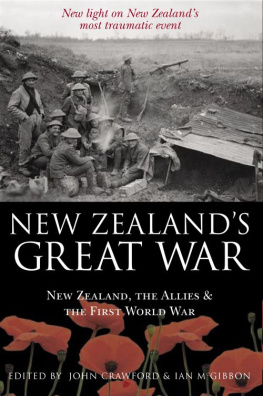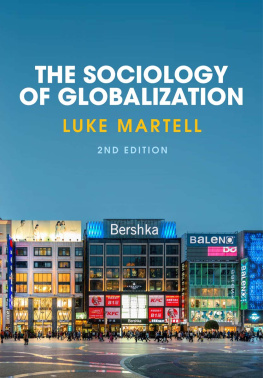Sovereignty under Siege? Globalization and New Zealand
Sovereignty under Siege? Globalization and New Zealand
Edited by Robert G. Patman and Chris Rudd
First published 2005 by Ashgate Publishing
Published 2016 by Routledge
2 Park Square, Milton Park, Abingdon, Oxon OX14 4RN
711 Third Avenue, New York, NY 10017, USA
Routledge is an imprint of the Taylor & Francis Group, an informa business
Copyright 2005 Robert G. Patman and Chris Rudd
All rights reserved. No part of this book may be reprinted or reproduced or utilised in any form or by any electronic, mechanical, or other means, now known or hereafter invented, including photocopying and recording, or in any information storage or or retrieval system, without permission in writing from the publishers.
Notice:
Product or corporate names may be trademarks or registered trademarks, and are used only for identification and explanation without intent to infringe.
British Library Cataloguing in Publication Data
Library of Congress Cataloguing-in-Publication Data
ISBN 9780754630647 (hbk)
ISBN 9781138277526 (pbk)
Professor Richard Bedford is Deputy Vice-Chancellor (Research) at the University of Waikato where he has been Professor of Geography since 1989. He is a specialist in migration studies and since the mid-1960s has been researching processes of population movement in the Asia-Pacific region.
Dr Janine Hayward is a senior lecturer in Political studies at the University of Otago. She has previously worked at the Waitangi Tribunal (New Zealand's indigenous claims commission) and continues to do research for various parties in the Treaty settlement process.
Dr Manuka Henare is Associate Dean of Maori and Pacific Development in the University of Auckland Business School where he heads the Huanga Maori Graduate Programme. He is also the Director of the Business School's Research Centre for Maori and Pacific Economic Development.
Dr Richard Jackson is a Lecturer in International Politics at the Centre for International Politics, the University of Manchester. His most recent book is Writing the War on Terrorism: Language, Politics and Counter-Terrorism , Manchester: Manchester University Press.
Dr David B. MacDonald is Senior Lecturer in the Political Studies Department at the University of Otago. He holds a PhD in International Relations from the London School of Economics and Political Science, and is the author of Balkan holocausts? Serbian and Croatian Propaganda and the War in Yugoslavia . Manchester: Manchester University Press, 2003.
Professor James M. McCormick is chair of the Department of Political Science at Iowa State University. He has authored or edited six books, including the recently published fourth edition of The Domestic Sources of American Foreign Policy: Insights and Evidence (with Eugene R. Wittkopf).
Associate Professor Robert G. Patman teaches in the Department of Political Studies at the University of Otago. He is the Director of the Master of International Studies programme and has authored or edited four books and is currently working on a forthcoming volume called Globalization and Conflict: National Security in a 'New' Strategic Era for Frank Cass, London.
Professor Paul Roth teaches public law, employment law, and international human rights law in the Faculty of Law at the University of Otago. He has published widely in the areas of employment law, human rights law, and data protection law.
Professor Martin Richardson did his Honours degree in economics at Otago University, a Masters at the ANU and a PhD at Princeton University. He has taught at Georgetown University in the US and at Otago and is currently Professor of Economics at the ANU in Canberra, Australia.
Dr Brian Roper is a Senior Lecturer in Political Studies at the University of Otago. He co-edited State and Economy in New Zealand and The Political Economy of New Zealand. His next book - Prosperity for All? The Keynesian Era, Neoliberal Restructuring and the Third Way is forthcoming with Dunmore Press.
Dr Chris Rudd is a senior lecturer in the Department of Political Studies, University of Otago. He is the co-author of The Politics and Government of New Zealand (Otago University Press, 2004) and co-editor of Political Communications in New Zealand (Pearson Education, 2004).
Professor Paul Spoonley is Regional Director (Auckland) for the College of Humanities and Social Sciences, Massey University. Recent books have included ones on work on New Zealand, immigration and ethnic relations. He is leader of the Labour Market Dynamics Research Programme on the changing nature of work, funded by the Foundation for Research, Science and Technology, and Building Research Capacity in the Social Sciences, funded by the Tertiary Education Commission.
Dr G.A.Wood is an honorary member of the Political Studies Department of the University of Otago, where he was for a number of years Associate Professor. His extensive writings on New Zealand government and politics include, with A.H.McLintock a study of the former upper house of parliament, The Upper House in Colonial New Zealand , with Chris Rudd The Politics and Government of New Zealand , a compilation of Ministers and Members in the New Zealand Parliament, and Studying New Zealand: a guide to sources.
The editors wish to thank the contributors who have made this volume possible. We also gratefully acknowledge the financial assistance provided by the University of Otagos Political Studies Department. Special thanks go to Paul Sorrell for his copy editing work, to Kyle Matthews for preparing camera-ready copy, and Diane Lowther for compiling the index. In addition, we wish to express our sincere thanks for the enthusiasm and support for the project given by the staff at Ashgate Press. Finally, and most importantly, we should especially like to thank our families, particularly our wives, Martha and Manami. Throughout the duration of this book they were supportive in every possible way.
Introduction
New Zealand Sovereignty in the Era of Globalization
Robert G. Patman and Chris Rudd
Structural changes in the global system have raised a big question mark over a traditional working principle of political life, namely, state sovereignty. Following the end of the Cold War and the subsequent break-up of the Soviet Union in 1991, the US has been left as the worlds only superpower. Consequently, the relative power of the US in the international hierarchy has sharply increased, a trend that has prompted some observers to characterize the post-Cold War system as unipolar. At the same time, the post-Cold War world has been subject to deepening globalization, a process that is associated with the growth of international linkages and a reduction in the capacity of nation-states to act independently. These radical changes, according to former United Nations Secretary General, Boutros Boutros Ghali, meant that the time of absolute and exclusive national sovereignty has passed (McKinnon, 1997: 7).
In this introductory chapter, we will explore the parameters of New Zealand sovereignty in a changing global context. The chapter proceeds in five stages. First, we will attempt to delineate the concepts sovereignty and globalization. Second, three competing schools of thought in the sovereigntyglobalization debate are considered. Third, we shall examine the emergence of some of the major features of New Zealand state sovereignty. Fourth, the impact of globalization over the last two decades is mapped out in terms of New Zealands national identity, economic and political engagement, and security and foreign policy dynamics. Finally, some reasons are advanced why, in international terms, New Zealand constitutes a good case study of globalization.

